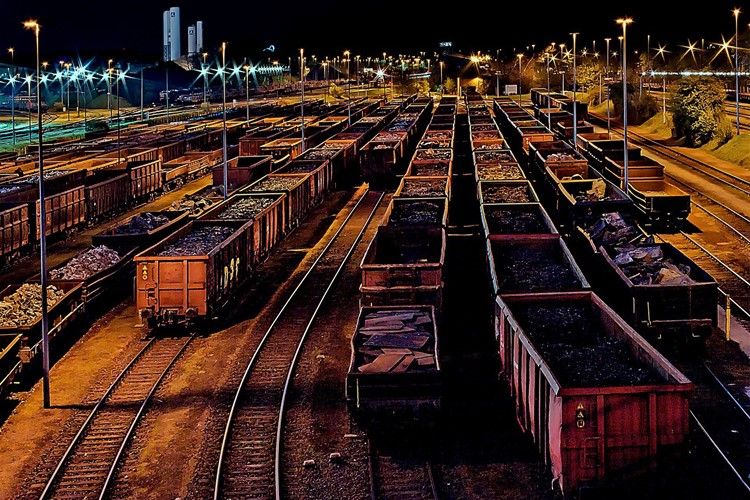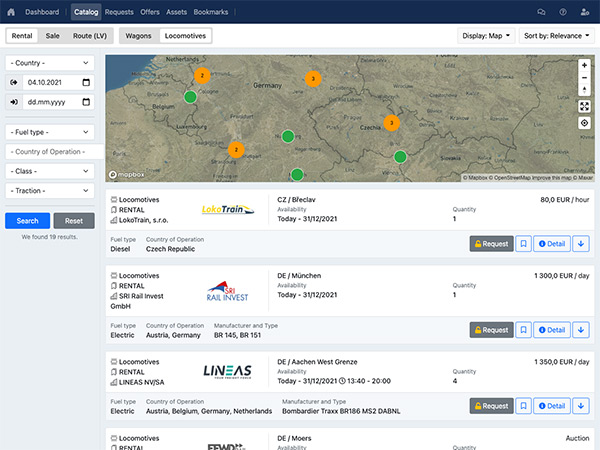The EU Green Deal climate neutrality target foresees a stronger role for railways, as defined in the modal shift goals of the EU Sustainable and Smart Mobility Strategy. Rail is indeed the closest mode to achieving net zero emissions before the mid-century. In addition to mitigating climate change, railways are also playing a vital role in addressing other global challenges, such as the travel of refugees and grain transportation from Ukraine. Nevertheless, rail’s modal share is at serious risk due to energy price developments. Energy amounts to approximately 10-20% of rail undertakings’ cost base and traction electricity prices in rail freight and passenger doubled for the period 2021 and 2022 with some countries even experiencing a tenfold price increase.
Community of European Railway and Infrastructure Companies (CER) declared that railway operators will not be able to maintain their ticket prices and shipping rates unless support measures, such as price caps for energy and state aid are introduced. Policymakers should adopt a multimodal approach in support measures and avoid competition distortion between modes of transport.
CER Executive Director Alberto Mazzola said: “Railways should be identified as a strategic service, which should be prioritized in the supply of affordable energy as a short-term measure. More freight and passengers on the rail will improve the EU’s energy balance. This is important in the current energy crisis and to help lower the EU’s energy dependency on imported fossil fuels.”
Also according to European Rail Freight Association (ERFA), the impact of dramatically increasing energy prices in the rail freight market has the potential to not only reverse the modal shift but also to fundamentally change the composition of the European rail freight sector. Many smaller and medium-sized railway undertakings are at risk of leaving markets or even bankruptcy depending on the evolution of energy charging policies. Measures must be taken that support rail freight and ensure that 20 years of market opening are not undermined. It is anticipated that over the coming weeks and months, rail freight undertakings that do not have sufficient energy purchased for 2022 and 2023 will have to secure a supply of energy to continue operations. As CER also EFRA highlighted that in some Member States, energy prices have increased ten-fold over the past months. In many cases, especially for smaller operators, entering into such agreements is not a viable option and will result in costs having to be passed on to customers, and if that cannot be achieved, operators leave markets or, in some cases, even bankruptcies. Moreover, there are still Member States where railway undertakings cannot even directly access the energy market and are dependent on the Infrastructure Managers purchasing decisions and their pass-through mechanism for the cost.
ERFA President, Dirk Stahl, stressed, “the risks facing the European rail freight sector, particularly smaller and independent operators, are serious. Without support in this extreme situation out of our control, it is difficult to see how we will not have operators leaving the market. The situation is becoming critical in the next month and action must be taken at the European and national level”.
EFRA continues that it must therefore be recognized that there is a real risk of market consolidation being triggered by rising energy prices. This could be more pronounced in countries where incumbent operators have more favorable access to financing via holding organizations or direct purchase conditions from incumbent holding energy suppliers as opposed to challengers. Even in cases where railway undertakings have purchased energy for the remainder of 2022 and into 2023, the absence of a cap on energy prices for rail freight will result in railway undertakings not only introducing sharp price increases to their customers but also limiting growth into new markets to limit energy consumption. This will damage the sector’s ability to grow in line with the objectives set out in the European Sustainable and Smart Mobility Strategy. It is, therefore, necessary that the European Commission and Member States take steps to cap energy prices for strategically important sectors such as rail freight as a short-term solution. As part of a longer-term solution, it will be necessary to find a sustainable pricing mechanism for energy for rail freight.
ERFA Secretary General, Conor Feighan, concluded, “ERFA strongly supports a cap on energy prices for rail freight and the recognition of rail freight as a strategic service. It is now necessary that the European Commission includes these points in expected emergency measures to tackle increasing energy bills”.

